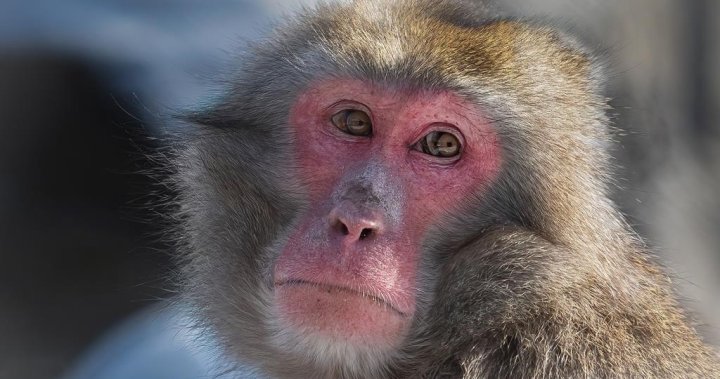Last week, during a total solar eclipse, the Granby Zoo in Quebec conducted a study on animal behaviors. The zoo’s research and conservation department collaborated with an astrophysics professor from Université du Québec à Montréal to observe and collect data on how the animals reacted to the rare phenomenon. The zoo, situated in the Estrie region, had one of the best views of the eclipse in southern Quebec. The study aims to understand how luminosity in the presence of the sun can influence animals, with a focus on how the findings can be extrapolated to wildlife species as well. Observers recorded the animals’ activities over two days before, during, and after the eclipse.
During the eclipse, the Japanese macaques at the zoo surprised researchers by reacting in an unexpected manner. Rather than becoming agitated or seeking nighttime habitats, the monkeys remained calm and Zen. The red-crowned cranes also went unusually quiet during the eclipse. Additionally, the male red panda, usually active, climbed a tree and slept with the female during totality, which was out of the ordinary. Conversely, the Himalayan black bears at the zoo continued sleeping through the afternoon without being influenced by the solar eclipse. The zoo observed that prey species had a stronger reaction to the eclipse compared to predator species.
Granby Zoo aimed to study a wide range of species, including those that are active during the day and those that are nocturnal. They observed that tahrs, ungulates related to goats and sheep, showed a drastic change in behavior during the eclipse. While they typically rested during the afternoon, all the tahrs were observed standing up and walking around during the eclipse. These little observations provided unique insights into how animals react to rare events like solar eclipses. The zoo is planning to publish a study on its findings, potentially shedding light on how luminosity can affect various species.
Chelsey Paquette, the conservation coordinator at Granby Zoo, emphasized the significance of collecting data during such rare events to better understand animal behaviors. The study conducted during the total solar eclipse yielded interesting results, highlighting the varied reactions of different animal species to the phenomenon. While some animals, like the Japanese macaques, remained calm and turned their backs to the sun, others, like the red-crowned cranes, became unusually quiet. Understanding these reactions can provide valuable insights that can be applied to wildlife species as well. Granby Zoo’s research and conservation department took advantage of the eclipse to gain a better understanding of how luminosity affects animals.
Overall, the study conducted at Granby Zoo during the total solar eclipse provided unique insights into animal behaviors. The observations made during the rare event revealed unexpected reactions from various species, ranging from calmness to unusual activities. By studying how different animals responded to the eclipse, researchers hope to extrapolate these findings to understand how luminosity can influence wildlife species as well. The zoo’s efforts to collect data on a wide range of animals, both diurnal and nocturnal, helped in making interesting observations about their behaviors during the eclipse. This study contributes to the growing body of knowledge on how animals react to environmental changes and rare phenomena like solar eclipses.


